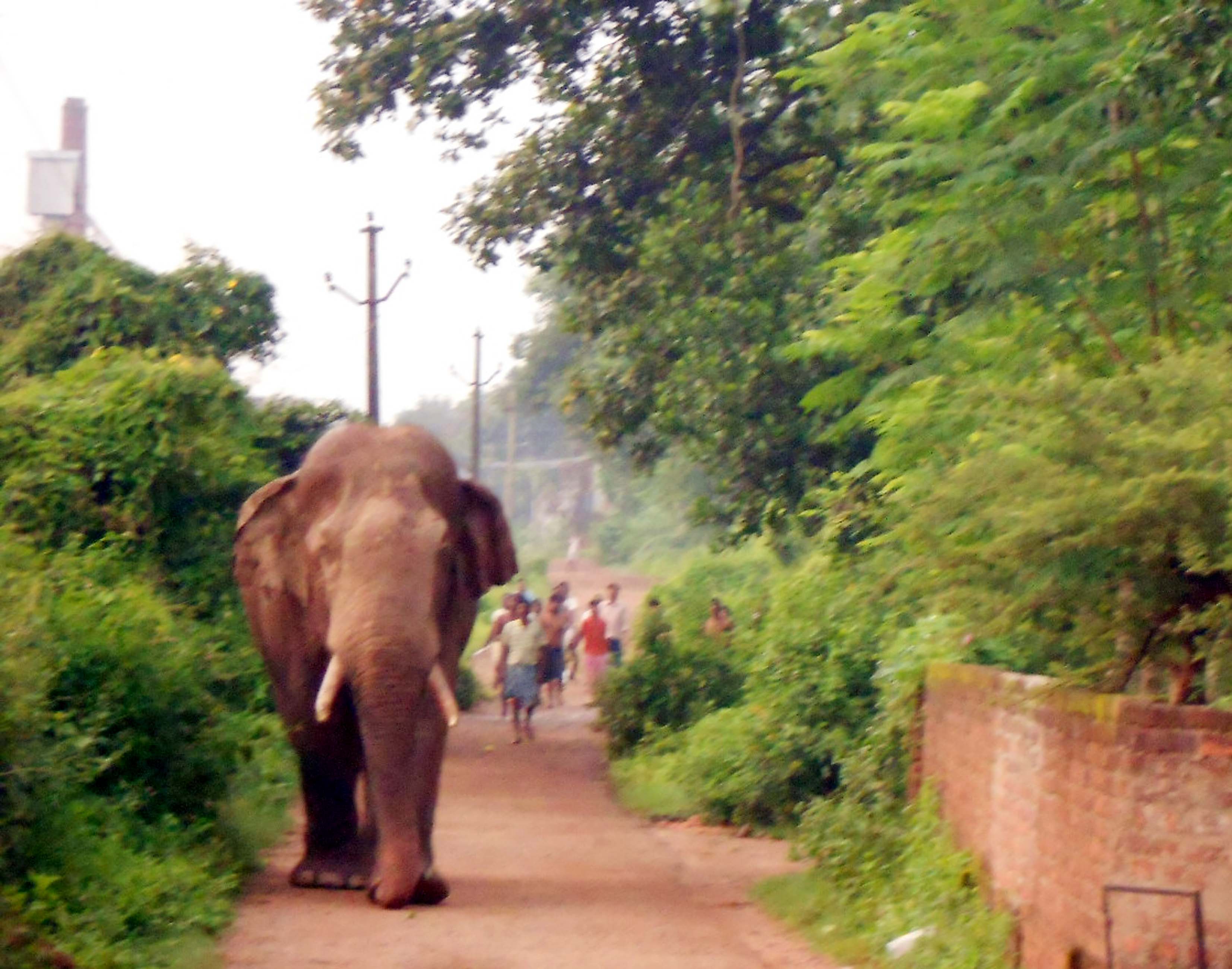The forest department in Kolhan has swung into action to protect over 300 elephants that reside here, following a wave of anger and grief over the death of a pregnant elephant caused by a cracker-stuffed pineapple in Kerala recently.
The forest department seems apprehensive that a Kerala-like incident might be repeated as the incidents of man-animal conflict occur here regularly.
Large-scale crop damage by herds of elephants has resulted in resentment among the villagers against the jumbos’ presence.
On steps for the protection of the wild elephants, regional chief conservator of forests (RCCF), Kolhan, Vishwanath Shah, said though the people here, including the tribals, pay homage to dead elephants by putting garlands on the carcass, some might copy the Kerala design to kill elephants.
“Concerned with the ghastly way a pregnant elephant was killed in Kerala, I have put all the divisional forest officers in the region and the entire forest department on alert,” Shah told The Telegraph here on Friday.
He said the department would distribute pamphlets in the local languages among the villagers to create awareness and to ask them not to harm the wild elephant.
“Though the villagers tend to pay homage to the dead elephants, we cannot take risks regarding the life of the innocent elephants. We will also mention the stringent action that we will take under the existing law against any offender,” the senior forest officer said.

A wild tusker near Ghatshila town. Animesh Sengupta
Kolhan, comprising East Singhbhum, West Singhbhum and Seraikela-Kharsawan districts, is also earmarked as an Elephant Project Area.
Dalma hills near Jamshedpur is a home to over 155 elephants and in Chaibasa and Saranda forests in West Singhbhum district there are about 160 elephants.
In Seraikela jungle there are about 25 resident elephants.
The elephants migrate from one forest to another in Kolhan and to the jungles in Odisha and Bengal frequently.
A senior official in the Jamshedpur forest division said several villages which falls in the elephant corridor along the Ghatshila-Chakulia stretch near the Bengal border are often disturbed by the frequent entry of wild elephants into the human habitats, causing resentment against the elephants as well as the forest department.
“There is every possibility that after learning about the Kerala incident, some villagers may try the same at the Ghatshila-Chakulia forest also. But the bulk of the villagers will not resort to such cruel tactics to get rid of the elephants as the forest department pays crores of rupees to the villagers as compensation for crop damage, house damage and even deaths every year,” the official said.











